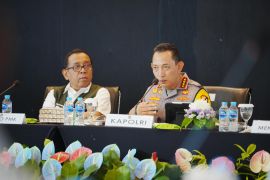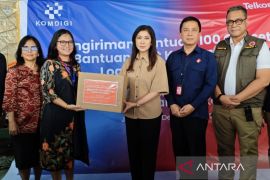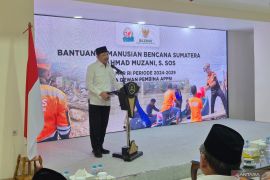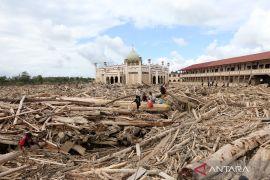Yusup remarked that PGN recorded a net income of US$3.07 billion in the year, with a corporate profit of US$565.49 million and earnings before interest, taxes, depreciation, and amortization of US$941.08 million.
"To optimize the companys performance, we have adopted various measures to increase efficiency, and so, we are able to make a profit in the midst of the economic slowdown," he explained.
From January to December 2015, PGN supplied 1,591 million cubic feet of natural gas per day (MMSFCD) comprising 802 MMSCFD in distribution and 789 MMSCFD in transmission.
Heri remarked that despite the slowing economy, PGN continued developing its infrastructure to expand gas use by the public.
In 2015, PGN completed the construction of over 800 kilometers of distribution and transmission pipelines in its existing and new regions such as Riau Islands, West Java, Banten, Jakarta, and East Java.
The company has also completed the 200-kilometer-long Kalija I gas transmission pipeline project connecting the gas source in the Kepodang field in the sea north of Java to the Tambang Lorok steam-powered electricity plant in Semarang, Central Java, belonging to the state-owned electricity company PT PLN.
"The completion of the Kalija I project is PGNs contribution to the nations electricity sector," he emphasized.
Currently, PGN owns and operates a 6,900-kilometer-long gas pipeline network representing 76 percent of the downstream gas pipelines in Indonesia, he revealed.
PGN also distributes gas to 1,520 industries and power plants along with 1,750 commercial customers such as shopping malls, hospitals, hotels, and small and medium businesses as well as 107,690 households.
In 2015, Heri noted that PGN was tasked by the government to manage and operate natural gas networks for households in 11 districts or cities in Indonesia totaling 43,337.
The household networks built by the energy and mineral resources ministry cover four thousand connections each in Blora and Semarang in Central Java and Bogor, Cirebon, and Depok city in West Java; 5,234 for public apartments in Jakarta, Bogor, Depok, Tangeran and Bekasi (Jabodetabek) area; 3,311 in Palembang in Sumatra; 2,900 in Surabaya in East Java; 3,366 in Tarakan city in East Kalimantan; Bekasi city in West Java; and 3,898 in Sorong district in Papua.(*)
Editor: Heru Purwanto
Copyright © ANTARA 2016











